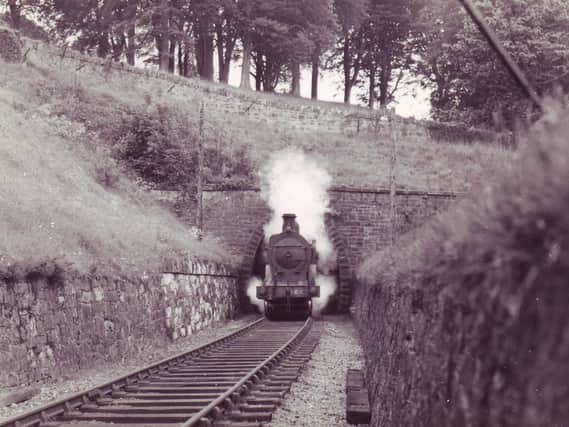THROUGH THE ARCHIVES: Correspondent demands action on drunken railways travellers


A Canadian visitor to Ireland called Charles Foy felt compelled to pick up his pen to write to the News Letter about a disgraceful experience that he had had while travelling on the train from Dublin.
He began: “Can you inform me if there is any law against railway companies allowing drunken men to travel on their lines?”
Advertisement
Hide AdAdvertisement
Hide AdHe continued: “If there be, it is certainly not observed, as it is a matter of frequent occurrence on all the lines, especially if there has been a fair in any of the towns on the line, to see drunken men shown into carriages by the railway porters.”
Mr Foy detailed his experience: “On Monday last I was a passenger by the two o’clock train from Dublin. At Drogheda a railway porter put in a drunken man, who, immediately after the train started, became very offensive to the other passengers in the carriage, a second class. He asked a young lady who was reading a book, ‘Young woman, is that the Bible you’re reading?’ He pulled a newspaper out of a gentleman’s hand and in other ways behaved very offensively. Fortunately he got out at Dunleer.”
He continued by detailing the position in Canada.
He stated: “In Canada we have cars exclusively for ladies; but in this old country, except [if] you belong to the wealthy classes who can afford to travel first class, you cannot send a female friend for the shortest journey without the dread of being insulted by some drunken ruffian. There are generally as many respectable men in a carriage as will not allow actual assault, but they cannot prevent females being insulted by the filthy songs and conversation of drunken blackguards [sic].”
Mr Foy concluded: “If there is a law providing a penalty for carrying drunken passengers all who are concerned . . . in having it enforced.”
Comment Guidelines
National World encourages reader discussion on our stories. User feedback, insights and back-and-forth exchanges add a rich layer of context to reporting. Please review our Community Guidelines before commenting.